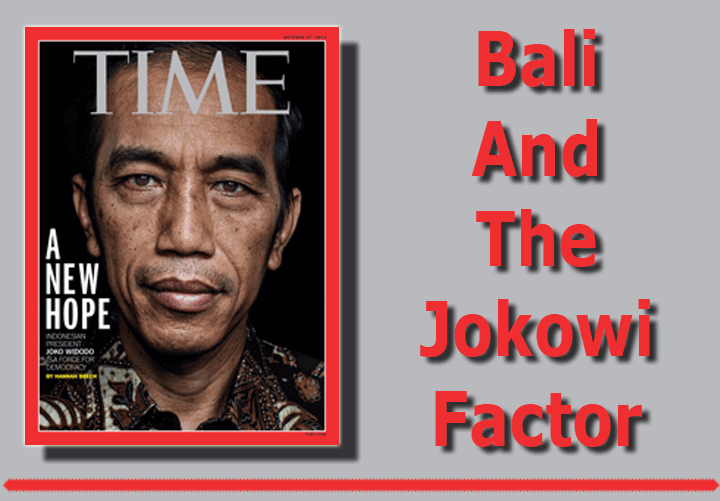| 
At this time of year,
the approach to Jakarta’s Soekarno-Hatta International Airport passes
over vast areas of flooded coastland. Shallow sea walls offer little in
the way of defense for farmland. On arrival, a half-built terminal stands
bereft of workers, its completion years behind schedule. Immigration
queues are lengthy and obvious processing shortcomings remain unaddressed.
A lack of planning and investment are clear
deficiencies at this key gateway to Indonesia, South East Asia’s
biggest economy and the fourth most populous country in the world with
some 250 million people.
A first glimpse of Soekarno-Hatta offers
an accurate overview of the challenges facing what some analysts believe
could, with the right reforms and investments, be one of the fastest growing
logistics and air freight markets in the world over the next decade.
Roads to and from the airport and nearby
Tanjung Priok port are rundown, flooding is common, and elderly, overloaded
trucks belch toxins, adding to the transport chaos and further damaging
the decrepit roads they rely on. Indeed, large swathes of Jakarta were
under water for much of January and February thanks to poor river defenses.
In this congestion-clogged and monsoon-flooded
mega city—Greater Jakarta is thought to now have a population of
almost 30 million—half-completed transport projects are common,
including the pylons for a ten-year monorail project that has now been
abandoned, leaving industrial statues across the city.
“There have been countless projects
and blueprints designed to improve transport in Jakarta and Java, but
not many ever happen,” comments one executive at a leading global
contract logistics provider from his office in the capital. “Outside
of Java on the other islands it is even worse. The roads and trucks are
in a terrible state and the whole forwarding and transport sector is fragmented,
so it’s very hard to find partners.”
But hope may be on hand in the statesmanlike
form of ‘Jokowi,’ the popular name for Indonesia’s new
President, Joko Widodo. Having reduced Indonesia’s crippling fuel
subsidies at the start of the year, he has promised to invest much of
the proceeds in urgently needed transport infrastructure. New ports, roads,
railways, and airports are in the pipeline. He has also pledged to embrace
trade facilitation measures, tackle corruption, and even find ways of
removing the State from the large swathes of the transport business it
currently dominates.
“If Jokowi can reduce the logistics
burden so there is at least some certainty supply chains can be managed
effectively then Indonesia could win a lot of the manufacturing production
that is now finding coastal China too expensive,” said the logistics
executive. “It has cheap land and labor and a huge domestic market,
it’s just very hard to do business here.”
 A
recent McKinsey study forecasts Indonesia rising from position 16 to position
7 of the world’s largest economies by 2030. Jan Willem Winkelhuijzen,
(right) Indonesia Country manager at DHL Supply Chain, said the archipelago
remained one of the world’s most attractive markets for consumer
products. “However, challenges exist, most importantly mastering
the ever-present staff shortages, employing expats, tedious administration
and procurement processes, inefficient authorities, and lack of transparency. A
recent McKinsey study forecasts Indonesia rising from position 16 to position
7 of the world’s largest economies by 2030. Jan Willem Winkelhuijzen,
(right) Indonesia Country manager at DHL Supply Chain, said the archipelago
remained one of the world’s most attractive markets for consumer
products. “However, challenges exist, most importantly mastering
the ever-present staff shortages, employing expats, tedious administration
and procurement processes, inefficient authorities, and lack of transparency.
“But due to high profit margins and
continuously rising revenues, most multinational companies have committed
to Indonesia for the long-term, a trend that is likely to be followed
by SMEs as well.”
This optimism is echoed elsewhere. A new
report launched this month by Transport Intelligence argues that if Jokowi
can improve the country’s logistics performance, which currently
costs around 24 percent of GDP each year, then the transport industry
will be a major beneficiary.
‘Indonesia Transport & Logistics
2015 – A New Dawn?’ concludes that Indonesia’s overall
freight forwarding market will expand by an average of 11.7 percent per
year from 2013 to 2019. But this could leap to 14.9 percent if Jokowi
can improve his country’s logistics performance substantially by
investing in new infrastructure and committing to trade facilitation reform.
Likewise, the air freight forwarding market could grow by 11.5 percent
CAGR and the express market by 21.5 percent over the period.
Should he fail to improve Indonesia’s
dilapidated infrastructure, however, then Indonesia could miss out on
a huge opportunity to boost economic growth and the ‘high’
figures mapped out in Ti’s 60-page analysis will be drastically
reduced.
SkyKing
|





